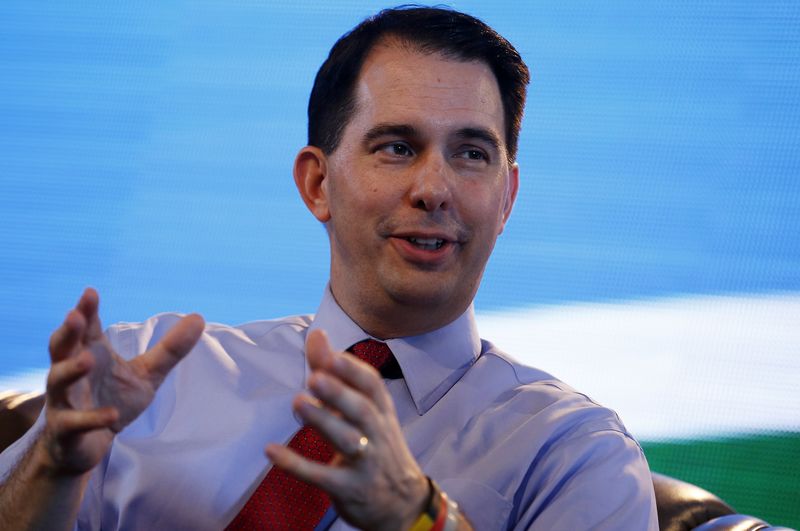By Brendan O'Brien
MILWAUKEE (Reuters) - Wisconsin Governor Scott Walker, considered a likely Republican presidential contender, signed a bill into law on Monday allowing private-sector employees to avoid joining unions or paying them dues even when covered by union-negotiated contracts.
The measure, approved by the Republican-led state Senate and Assembly over the course of two weeks, takes effect immediately, making Wisconsin the 25th state to enact a so-called right-to-work statute following adoption of similar laws in Michigan and Indiana in 2012.
The measures have been cast by supporters as designed to retain and attract businesses and jobs, while opponents brand them as thinly disguised assaults on organized labor that will drive down wages and leave workers vulnerable.
Right-to-work laws like the one in Wisconsin bar private-sector workers covered by a collective-bargaining agreement from being required to join and financially support their union as a condition of their employment.
Weighing into the debate from Washington, President Barack Obama criticized the newly enacted legislation as "anti-worker," calling it the product of a "sustained, coordinated assault on unions led by powerful interests and their allies in government."
Walker touted the bill as addressing what he called the "freedom to work," one of a handful of the top issues the governor said he regularly confronts when attending trade and investment tours on behalf of Wisconsin.
"It sends a powerful message across the country and around the world," Walker said. "This is one more tool that will help grow good-paying, family-supporting jobs here in the state of Wisconsin, particularly in the areas where you need them in manufacturing."
Walker became a hero to conservatives when he pushed for a law to limit the collective-bargaining rights of public-sector employees shortly after taking office in 2011. His stature only grew when he survived a union-backed recall election in 2012.
Thousands of workers demonstrated at the state capitol in Madison as lawmakers debated the bill before it won final legislative approval on Friday.
But the crowds were far thinner than four years ago, when tens of thousands of people protested the push for changes to public-sector labor rights.

About 8 percent of private-sector workers in Wisconsin belong to unions, down from about 22 percent three decades ago, according to the Unionstats.com website that tracks membership in organized labor.